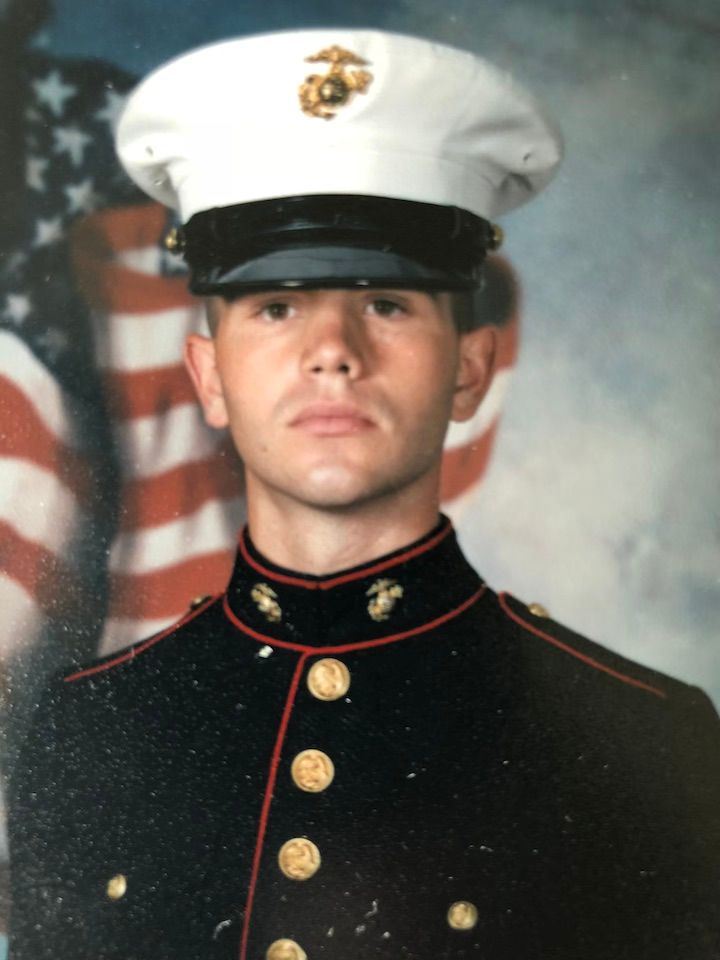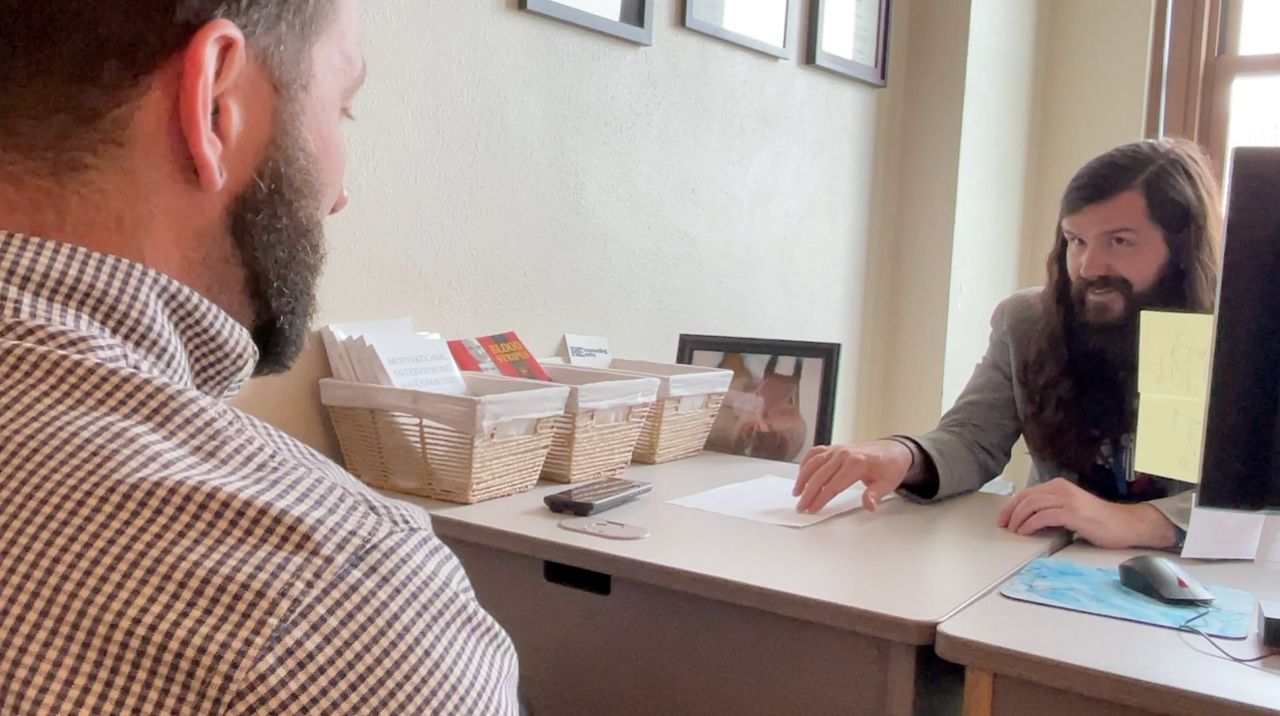ASHEVILLE, N.C. — A North Carolina veteran is making a difference in his community through Buncombe County Veteran’s Treatment Court.
The program supports veterans charged with misdemeanor or felony offenses, who are struggling with addiction or mental illness. There are only four programs of this nature in the entire state.
The treatment court is voluntary and court-supervised for veterans. Substance use treatment and help with mental health disorders are vital parts of the program. Treatment includes intensive outpatient treatment, weekly community-based recovery groups and regular drug screening.
Kevin Rumley is the program coordinator and also a Purple Heart Veteran, and he is also a longtime musician who’s been playing drums since he was a young boy.

“Music and drums have just been how I have found an outlet to communicate my feelings, my emotions,” Rumley said.
His mom, who died when he was just 15 years old, first identified he could potentially be a drummer someday. At age 18, when he felt like he didn’t have many options, Rumley followed in his dad’s steps: he enlisted.
“The journey to the Marines was instilled at a young age,” Rumley said. “My father was a Marine.”
Within a year-and-a-half of being in service, he was deployed to the Syrian Border. He was on foot patrol when suddenly, an IED exploded.
“When I looked down, I saw that my legs were blown up and my arm was blown up,” Rumley said. “I remember a feeling of drowning, a feeling of terror.”
He says a medic ran to him and gave him morphine to numb the pain. He remembers feeling OK with whatever happened next, but the morphine ended up leading him down a dark path of drug and substance addiction for seven years. Rumley spent more than a year in the hospital recovering.
“I had no idea that was really the beginning of a long struggle for me with opioids and addiction,” Rumley said. “Alcohol, really anything that would transport me away from just the struggle that is dealing with reintegrating into society.”
He says 26 Marines died during his six-month deployment. His best friend was one of them.

“I was so young,” Rumley said. “I had just lost my mom when I was 15. I just lost all these close friends in combat, and then was just returned home.”
Rumley finally had enough and chose sobriety.
“I can tell you that day one of what has now been almost 11 years of sobriety, I had no idea what day two would bring,” Rumley said.
He got through those days, and what helped him were the people in his corner. They helped him believe in himself.
Now, as the program director of Buncombe County’s Veteran’s Treatment Court, he’s giving veterans facing non-violent felony charges a second chance and addressing the underlying issues, like PTSD, addiction or mental illness.
“I tell the veterans this all the time that come in, and they say ‘I don't, I don't think I can,’ I can really empathize with that feeling where you don't trust your own ability to change, because everything you've done before hasn't worked,” Rumley said. “And so, you have no proof that you can do anything different.”

He advises veterans who stand where he once stood, connecting them with recovery programs, therapies, the resources they need to succeed. Sometimes a second chance is all you need. From a Purple Heart veteran, to an addict, to an advocate for veterans, to a clinical social worker, Rumley is an everyday hero.
Rumley is working on his doctorate’s degree currently. He also wants to shape veteran’s court policy at the national level.



